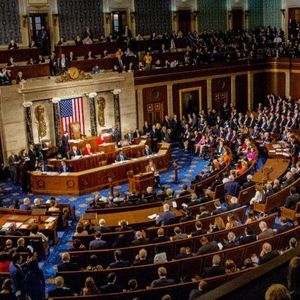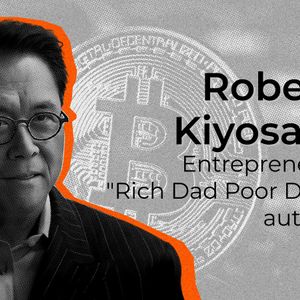BitcoinWorld Binance Singapore’s Unwavering Strategy: Navigating New MAS Crypto Regulations In the dynamic world of cryptocurrency, where regulatory landscapes shift as rapidly as market prices, a recent development concerning Binance Singapore has caught the attention of industry watchers. The global crypto giant, Binance, has made a strategic decision to maintain its remote workforce in Singapore, even as the city-state introduces stricter guidelines for digital token service providers. This move signals a nuanced approach to compliance and operational continuity in one of Asia’s leading financial hubs. Understanding the New Singapore Crypto Regulations Singapore, known for its forward-thinking stance on financial innovation, has been diligently crafting a robust regulatory environment for the crypto sector. The Monetary Authority of Singapore (MAS) has been at the forefront, introducing new guidelines aimed at enhancing consumer protection and combating illicit activities. The latest iteration of these Singapore Crypto Regulations specifically targets Digital Token Service Providers (DTSPs) that are registered in Singapore but serve clients located offshore without a proper license. Key aspects of these updated rules, which came into effect on June 30, include: Offshore Service Prohibition: Crypto firms operating from Singapore are now explicitly required to cease providing unlicensed digital token services to clients outside the city-state. This closes a previous loophole where entities could leverage their Singapore registration for global operations without being fully licensed for those offshore activities. Enhanced Scrutiny: The MAS is increasing its oversight on the activities of DTSPs to ensure they comply with anti-money laundering (AML) and counter-financing of terrorism (CFT) requirements, regardless of their client’s geographical location. Leveling the Playing Field: These rules aim to create a more equitable and secure environment for all market participants, ensuring that all entities providing Digital Token Services adhere to the same high standards. This regulatory tightening is part of Singapore’s broader strategy to balance innovation with risk management, ensuring that its reputation as a trusted financial center remains unblemished in the burgeoning digital asset space. Binance’s Strategic Approach to its Remote Crypto Workforce Despite these new, stricter guidelines, Binance’s decision to retain its Remote Crypto Workforce in Singapore is a testament to its adaptive strategy. Sources close to the matter indicate that the new MAS rules are expected to have minimal impact on Binance’s operational footprint within Singapore. This suggests that Binance’s existing activities and its approach to its workforce are already aligned, or can be easily aligned, with the updated regulatory framework. What does this mean for the future of work in the crypto industry, particularly in a global hub like Singapore? Flexibility and Talent Retention: Maintaining a remote workforce allows companies like Binance to tap into a global talent pool, unconstrained by geographical boundaries. This flexibility is crucial in a rapidly evolving industry that demands specialized skills. Operational Resilience: A distributed team can offer greater resilience against unforeseen disruptions, whether they are regulatory shifts, geopolitical events, or public health crises. Cost Efficiency: While not the primary driver, remote work can offer certain cost advantages related to office space and infrastructure, allowing resources to be reallocated to core business functions and compliance efforts. Binance’s move underscores a growing trend in the tech and crypto sectors: the recognition that a physical office in a specific jurisdiction isn’t always a prerequisite for maintaining a strong presence and adhering to local regulations. Impact on Digital Token Services and Offshore Clients The core of the MAS’s new rules lies in regulating Digital Token Services provided by Singapore-registered entities to offshore clients. Previously, some firms might have operated under a gray area, using their Singapore base to serve a global clientele without specific offshore licensing. The new rules bring clarity, demanding that such activities either cease or obtain proper authorization. For Binance, which has a vast global footprint and a complex operational structure, this means ensuring that any services provided from Singapore are strictly in compliance with local licensing, or are structured in a way that falls outside the scope of the new offshore service prohibition for unlicensed entities. It suggests that Binance’s primary services to offshore clients are likely managed through other licensed entities or jurisdictions, or that its Singapore-based remote staff are engaged in activities that do not fall under the new restrictive definition of unlicensed offshore services. This regulatory clarity is a double-edged sword. While it might lead to some consolidation or restructuring for firms that were previously operating in the gray, it also provides a more defined playing field, which can ultimately foster greater trust and stability in the market. Why the MAS Crypto Framework Matters Globally Singapore’s approach to crypto regulation, particularly its comprehensive MAS Crypto Framework , is often viewed as a benchmark for other jurisdictions. Its emphasis on a robust licensing regime, coupled with a willingness to engage with industry players, sets a precedent. The recent tightening reflects a global trend towards greater oversight of the crypto industry, driven by concerns over financial stability, consumer protection, and illicit finance. This framework is significant because: Precedent Setting: What Singapore implements often influences regulatory thinking in other financial centers. Investor Confidence: Clear regulations can attract institutional investors and legitimate businesses, as it reduces uncertainty and perceived risk. Combating Illicit Activities: Stronger rules help prevent the use of crypto for money laundering and other illegal purposes, enhancing the overall integrity of the financial system. Binance’s ability to navigate this evolving framework successfully will be a key indicator of how major crypto players can adapt to increasing global regulatory scrutiny. Challenges and Opportunities for DTSPs in Singapore While the new regulations pose challenges, they also present significant opportunities for DTSPs committed to compliance and sustainable growth. The immediate challenge is adapting existing business models to meet the stricter requirements, especially for those serving offshore clients without explicit licenses. This might involve significant operational adjustments, legal reviews, and potentially seeking new licenses in other jurisdictions or Singapore itself. However, the opportunities are equally compelling: Enhanced Legitimacy: Operating under a clear regulatory framework can significantly boost a firm’s credibility and attractiveness to institutional clients and mainstream investors. Competitive Advantage: Firms that successfully navigate these regulations will gain a competitive edge over those that struggle or choose to operate outside the regulated sphere. Market Maturation: Stricter rules contribute to the overall maturation of the crypto market, weeding out bad actors and fostering a more stable and trustworthy ecosystem. For a giant like Binance, demonstrating seamless adaptation reinforces its commitment to global compliance and its long-term vision for the industry. The Future of Crypto in Singapore: A Beacon of Clarity? Binance’s continued commitment to its Singapore presence, even if primarily through a remote workforce, underscores the city-state’s enduring appeal as a strategic hub for the crypto industry. The MAS’s measured yet firm approach to regulation aims not to stifle innovation but to channel it responsibly. This balance is crucial for attracting reputable crypto businesses and fostering a sustainable digital asset ecosystem. The saga of Binance Singapore and its navigation of the new MAS Crypto Framework offers valuable insights into the evolving relationship between global crypto exchanges and national regulators. It highlights that compliance, flexibility, and strategic operational structuring are paramount for long-term success in the crypto space. As the industry matures, we can expect more jurisdictions to follow Singapore’s lead, demanding greater accountability and clearer operational boundaries from digital token service providers. To learn more about the latest crypto market trends, explore our article on key developments shaping the digital token services landscape and institutional adoption. This post Binance Singapore’s Unwavering Strategy: Navigating New MAS Crypto Regulations first appeared on BitcoinWorld and is written by Editorial Team
















